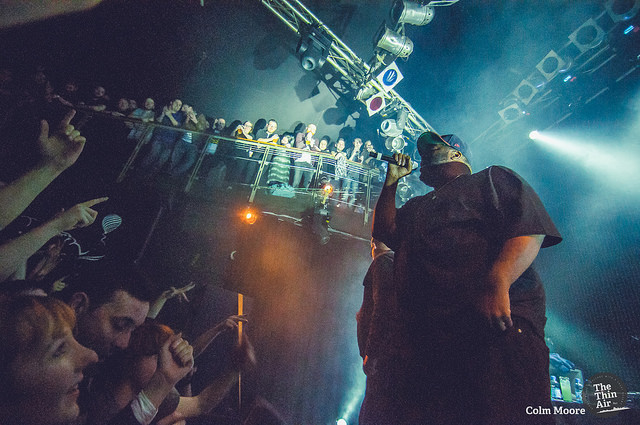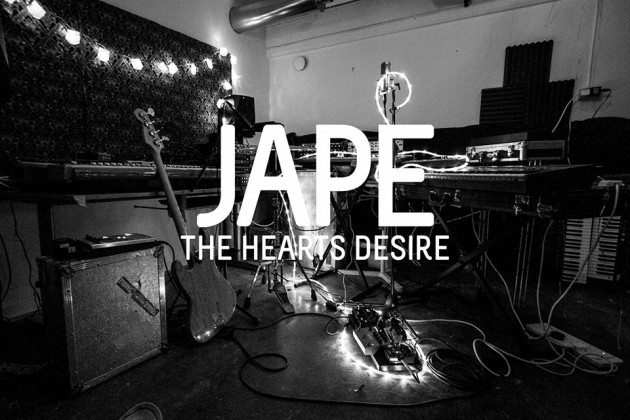We’re pleased to present a new regular feature, Front of House, in which we will be chatting with the people behind the scenes who bring live music to life. Sound engineers, lighting technicians, roadies, tour managers to name a few will all be delving into what goes into their job and the bands they work with. First up is Conor Friel, a sound engineer working primarily in the Button Factory in Dublin. Photos by Shaun Neary.
Hi Conor! Can you tell us about yourself?
My name is Conor Friel, I am a Front Of House Audio Engineer. I am completely freelance so I tour with a lot of different artists. I am based in Dublin, Ireland. I work there as a house engineer for The Button Factory, Temple Bar, Dublin. I also lecture in Live sound at the Sound Training College.
How did you become a sound engineer and how long have you been involved in it?
I have been a professional audio engineer since 2008 when it became my full time job. After finishing college I continued my studies at DFEI in Dun Laoghaire and at the Sound Training College, Temple Bar. Prior to doing sound I had been in a number of bands over the years on the other end of the cable.
What goes into the job? (training/courses/hours etc.)
I believe professional training is absolutely necessary when wanting to join the music industry. It enables you to learn the basic run of all areas in your industry before you actually implement things. It is possible to ruin a show through a mistake. You do not want to start you career on that note. Though, in saying that, there are at lot of courses in colleges out there certifying people that are not ready for the industry. This is why getting the ‘real’ work experience is a huge factor. When I was training I was able to shadow a top class engineer and take on board an awful lot of knowledge. You have the basic knowledge but you must learn how to implement them correctly in the live domain.
Working with Conor McGreanor from The 4 of us at Vicar street in March 2014.
How does your job differ from venue to venue?
Each venue is different. These are some of the variables you have to deal with: different PAs, consoles, monitors, rooms, stages, backline, microphones and even crew. All venues have different acoustics. All of these determine how good your show will really be on that night. If all of these variables are 100% amazing you will be delighted with the sound but nine times out of ten you will have a few variables at 20%. This is why an artist will hire you and want you there. You will get the best possible result from all of these areas.
Describe your typical work day.
My typical workday is exciting. I generally am in a new venue, new city, and sometimes with a new artist. I love going to work because it is something I am passionate about. Not everyone is happy going to work, I am grateful that I get to do what I love everyday.
Can you tell us about the set up/equipment used?
The setup can often be up to 12 hours prior to the show that you actually see. We often load into the venue at 11am. It takes 3/4 hours to setup and install the touring PA/LX and load in the FOH and MON consoles. Sound check for the artist can then take place. We as audio engineers would tune the PA to suit the room prior to the artist taking to the stage. The equipment used by myself touring would often be an Avid Profile Console with Waves plugins or a Midas Pro 1. The PA I would spec varies depending on what I need it to do. The companies I like to use for PA are d&b Audiotechnik, L’Acoustics and Meyer.
Working with The Riptide Movement at the Empire Music Hall in Belfast in October 2014.
What are the biggest problems you encounter in your line of work?
The biggest problems that tend to occur are a breakdown in communication. You would turn up to a venue expecting a particular setup or piece of equipment and it would not be there. This is why you employ a good production manager or tour manager to advance everything correctly and precisely.
Any gig disasters stories you’d like to share with us?
The year before last I was doing monitors at a large Irish festival (I won’t name names!) and half way through an artist’s performance the electrician decided to switch the 63a power socket on a generator. In doing this we lost all power. Not the brightest idea that sparks has had!
Have you ever gone on tour with a band to do their sound?
I tour a lot doing sound for artists. I love touring. It is hard work, but it’s interesting and exciting at the same time. All of the shows blur into one but you can have a lot of fun.
Where’s your favorite venue to work in Ireland?
My favorite venue to do sound in at the moment is Vicar Street in Dublin. I know I am house engineer in the Button Factory which I also love but I have had some really special shows in Vicar Street over the last year that have won me over. Ultimately, the attitude of the artist and their crew has a lot to do with the success of a show.
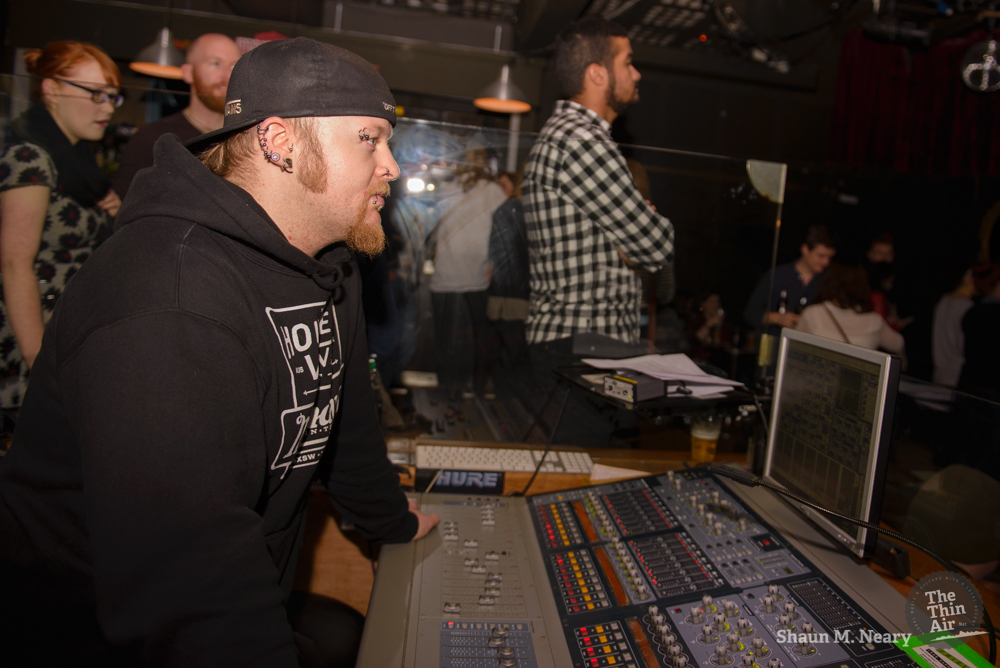
Conor working as house engineer in the Button Factory in Dublin.
Who is the most interesting band you’ve worked with?
That’s a difficult question to answer. All of the artist I work with directly full time are interesting, from White Chalk to Nico Vega, The Academic to Kodaline, Heathers to This Club. You cannot compare the bands as all of them have amazing talent. They are just a few to mention but you get what I am trying to say.
What would be your dream gig to work on?
My dream gig is ongoing. I’m doing it!
What upcoming gigs will you be working at for 2015?
I start an arena tour with White Chalk in January through February then straight onto another tour in March. 2015 will be a busy year.
You can find out more about Conor by checking out his website www.frieltoursupplies.com

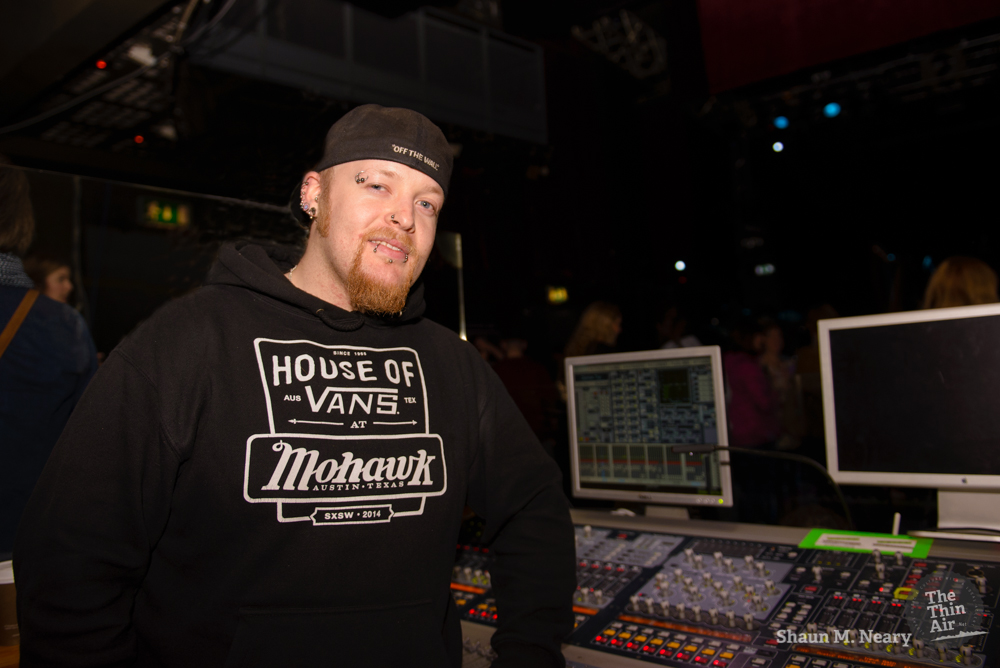
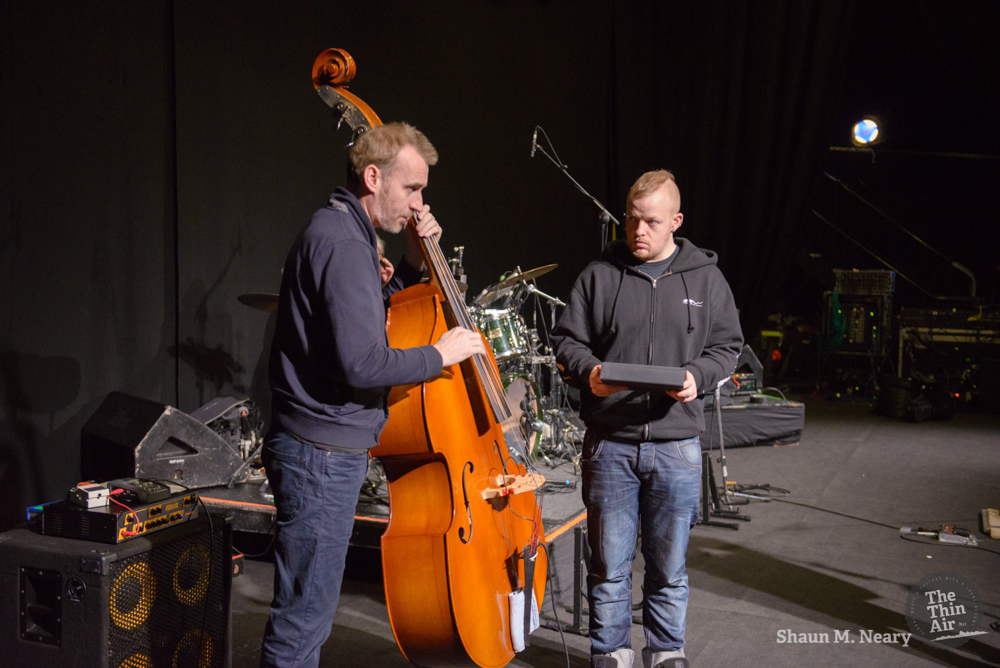
![[SOUNDCHECK] The Riptide Movement - Empire Music Hall, Belfast on October 30th 2014 by Shaun Neary-08](https://thethinair.net/wp-content/uploads/2014/12/SOUNDCHECK-The-Riptide-Movement-Empire-Music-Hall-Belfast-on-October-30th-2014-by-Shaun-Neary-08.jpg)
